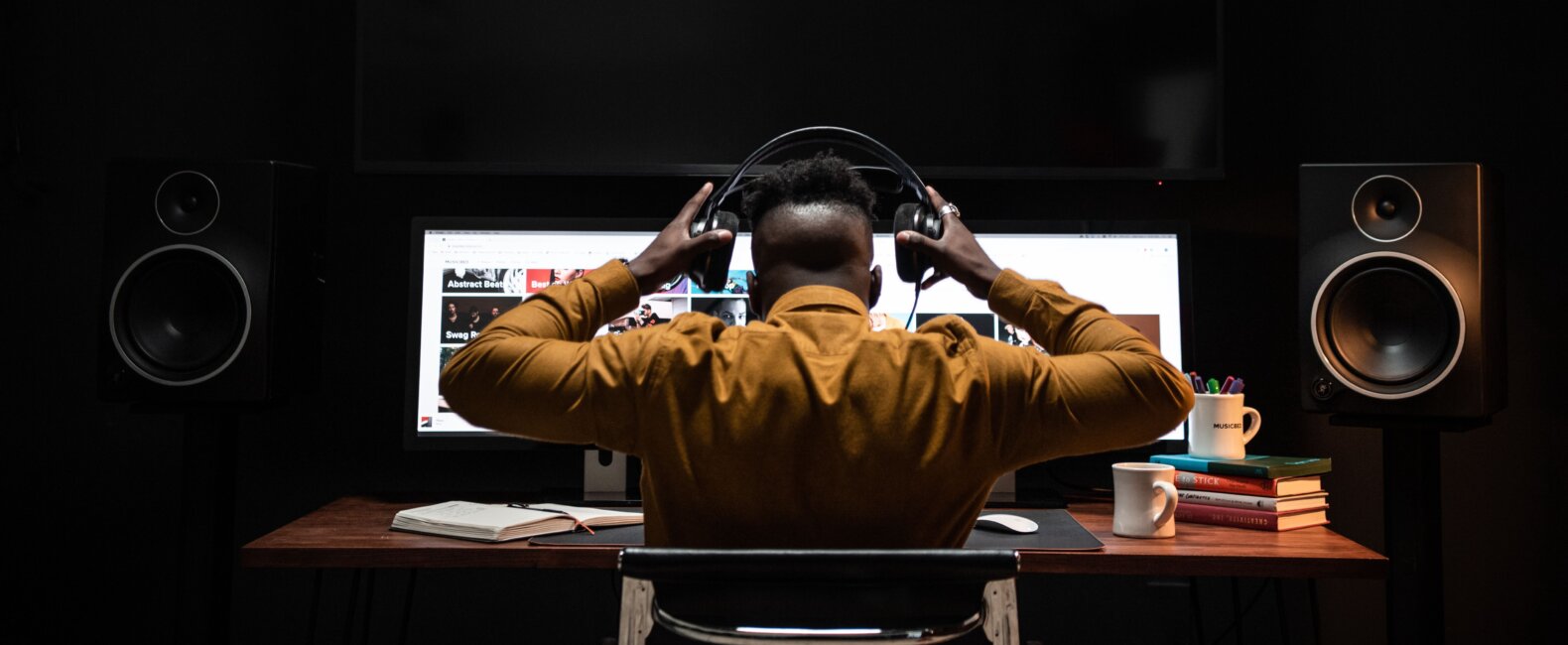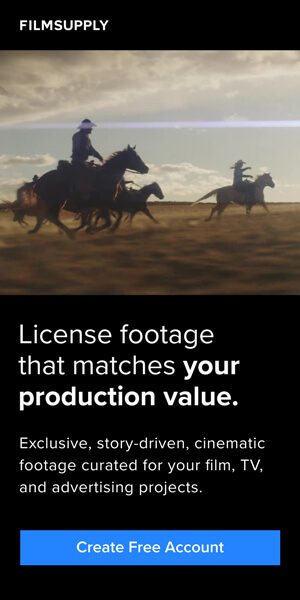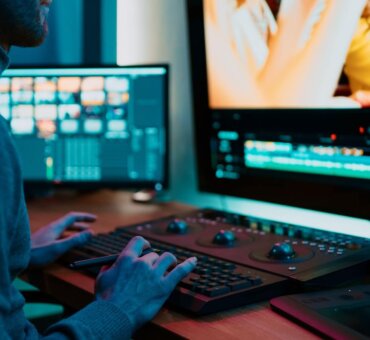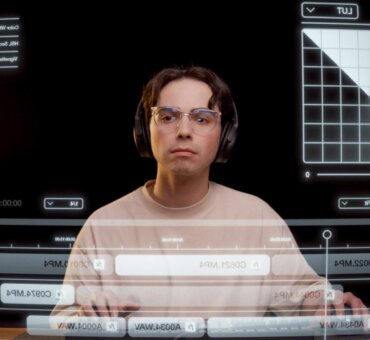It is important for every filmmaker to know about music licensing, whether you need music for film festivals, wedding videos, television, commercials, or online content.
We’ve all talked about seeing a film and discussing what we’ve watched, but a major part of the movie experience is hearing the score and listening to the soundtrack. The perfect song and choice of sound effects can make or break a scene, and every independent filmmaker needs to know the essentials of music licensing.
There are memorable soundtracks in classic films that immediately evoke emotion, whether it’s hearing John Williams’ Star Wars theme (that immediately gets many grown adults to start miming lightsabers), Dick Dale’s “Misirlou” guitar track at the start of Pulp Fiction, or the “Bohemian Rhapsody” car headbanging scene in Wayne’s World that introduced Queen to a whole new generation. But which music can an indie filmmaker use, what rights do you need before you do your editing, how do you go about getting those rights, how do you keep your soundtrack legal and avoid getting into trouble, what kinds of licenses are there, how much does it cost, and what can you do for free? Let’s get started!
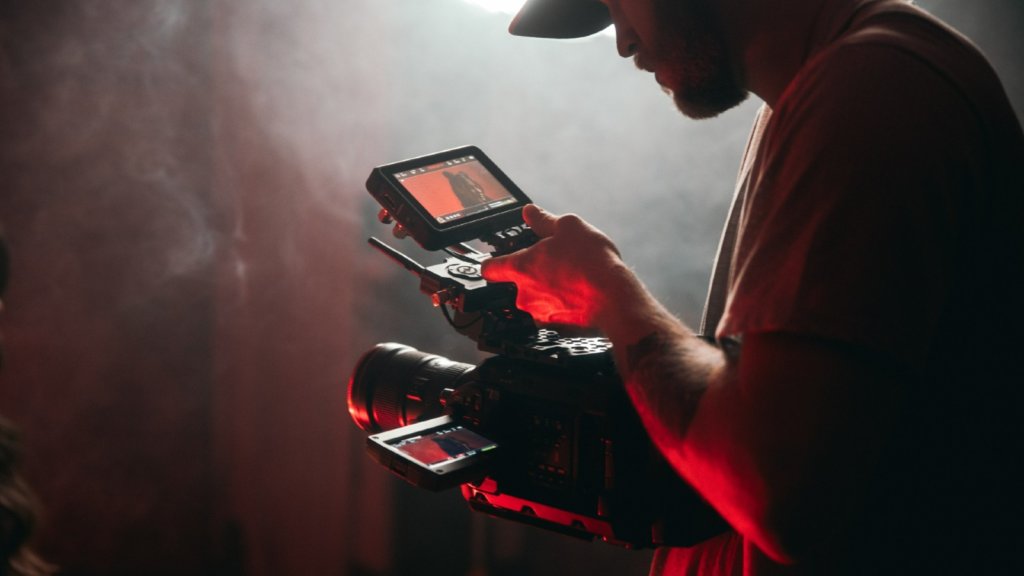
Working with a music composer
There are many ways to find a composer, whether it is through ASCAP, filmmakers’ forums, or even Facebook groups, and typically, you will pay the composer at the start of the process. It can be good to start thinking about this when you are importing your raw footage or even during pre-production. There are different factors involved depending on their level of experience, how much music you need, and your working budget, so there is no way of generalizing how much this would cost.
Music licensing organizations
There have historically been several stakeholders in a song, which are the songwriters, the recording label, the artists, and the publisher. In the past, you had to negotiate with each of those groups in order to use a song, but in recent years, there are music licensing companies who have created their own music libraries. Composers and creators negotiate directly with these companies, which means that you only have to deal with the company. This innovation removes a big headache and allows you an easy way to get one all-in license and get on with the production of your film. Later, we will get into the specific kinds of licenses.
Composers will often be part of PROs, or Performance Rights Organizations. The three main organizations are ASCAP, BMI, and SESAC, and part of their role is to ensure that songwriters are paid for the music that is used. This is excellent for the music makers, whether their music is being used in film, television, radio, or live performances. It is, however, critical that filmmakers ensure they have the correct license for music on the soundtrack. The PROs have lawyers at the ready. Litigation is a serious possibility for violations of a license, and you want your film to receive awards at a festival instead of a court summons.
Fees to composers
The composers’ fee covers the actual writing and composition, but it is important to clarify whether the other aspects are covered when planning the sound design for your projects. Questions to ask include whether the fee covers the master recording, publishing costs, and musicians and record label fees. If in doubt, a good starting place is to take advice from the respective PRO organization.
Who owns the film score?
Nothing can be assumed when it comes to issues around ownership. There is a “Composer Agreement” that details ownership of both the score and publishing. ASCAP explains that “if the production company pays the appropriate composer’s fee up front, it usually retains the publisher’s share of the music while the composer retains the writer’s share.” This situation is where the production company also sets up a publishing company, which can be done through ASCAP. You will, however, need the Composer Agreement to include the usage of the music, which details international rights, television usage, film festivals, and more. PROs can help with all of these specifics.
What is copyrighted music?
Copyrighted music is the concept that the owner of any work has the right to copy, distribute, perform, and make decisions as to who can use the music they have created. The music and the recording are considered two distinct entities for the sake of copyright since different artists will often record the same music. The copyright itself exists the moment a work is created, however it is strongly recommended that artists register their copyright with the U.S. Copyright office for further protection.
Consequences of using copyrighted music
The consequences can depend on exactly which part of the copyright you have violated and what the platform is. For example, on YouTube, you can receive a “copyright strike,” which may limit which countries it is being shown in or potentially have your video muted or blocked. Alternatively, they may just make your video non-monetizable and instead classify it as “ad-supported music,” which means that adverts could be run that benefit the copyright holder. YouTube uses an algorithm called Content ID, which uses a database that searches 50 million copyrighted works. This makes it almost impossible to evade the system, which is a great thing for music creators.
On a larger scale, using copyrighted music outside of YouTube can result in massive fines (potentially $150,000), being taken to court, and the potential threat of jail time. Copyright infringement should be avoided at all costs.
Sync and master use
Let’s talk about these two kinds of music licensing agreements for film—including Sync and Master Use. The sync is the song itself and how it is synchronized with the visual images in film, television, commercials, or video games. The Master Use is the recording you are using for any given film clip. For “Bohemian Rhapsody” in Wayne’s World, the Master Use license would have been from Queen’s record label, and the Sync license would have come from the copyright holder to the original composition when using it with your footage. A good music licensing company can help you navigate copyrights to ensure you have the correct licenses.
Musicbed licenses
Rights-managed music means that the copyright owners have control over their work and how it is used. Musicbed provides a Synchronization/Master Use License that covers both the music and how it is being synced in a film. This makes the process significantly easier for filmmakers since they will only have to obtain one license.
Musicbed represents an elite roster of artists across all genres. The site has partnered with major brands, including Nike, Google, Lamborghini, and Spotify, along with the major entertainment networks and streaming platforms. The quality is second-to-none, and it is a one-stop sync licensing platform to make your life easier and your films even better. Musicbed also provides the option for custom music and even professional cover recordings of songs you want to use.
What is royalty-free music?
Royalty-free music means that you have no further royalties to pay once you purchase the license. However, it is important to remember that it is not free of charge to use royalty-free music! Rights-managed music refers to how music publishers will collect royalties on behalf of the performance rights holders. It is important to know the difference and how it could impact your costs in the long term.
Public domain music
Music or other works of art generally become public domain when 70 years have passed since the creator’s death. But this does not mean that you can automatically use somebody’s work because there are other factors to bear in mind.
Mozart may have died in 1791, and there is no active copyright from 18th-century Vienna, and as such, his music is in the public domain. You cannot, however, use Mozart’s music at will. This is a classical (no pun intended) example of the difference between composition and performance because the performance will be covered by a copyright relating to who recorded it.
As an example, a recording of The Marriage of Figaro by the London Philharmonic Orchestra in 1984 will have a different copyright from the same piece of music that appeared in the Amadeus movie soundtrack—also in 1984—which was a different version recorded by The Academy of St Martin-in-the-Fields. In short, classical music is not free.
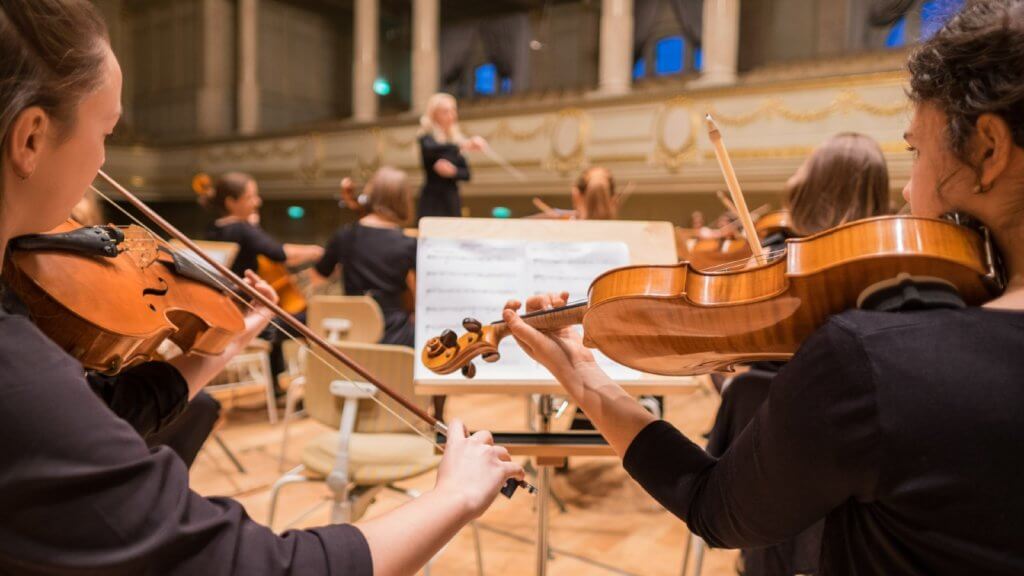
Creative Commons music
Creative Commons is an excellent resource for filmmakers since it allows you to use rights-reserved music for free. Creative Commons is a non-profit organization that includes various forms of content, including music, movies, and images and has a variety of licenses that usually require you to attribute the art to its creator.
Music Licensing FAQs
Let’s spend a few minutes talking about the most frequently asked questions about music licensing that we hear.
Absolutely. However, it is essential to know if the free music you’re about to download has any copyrights, including composition, publishers, master recordings, and labels.
We recommend against it because there are too many dangers with ‘free’. You could end up paying a lot in the long term.
In many cases, the answer is yes. However, it depends on who wrote it, how it was recorded, and who owns it.
License a famous song to use in your film that is touring film festivals for as low as $1,000. This includes $500 for the publishers and $500 for the master.
It depends on who composed it, recorded it, published it, and owned the rights, but contact our team at Musicbed, and we can help you get the pricing for the song license you need.
In conclusion
This article does not constitute legal advice. Before finalizing the soundtrack of your film, we recommend conducting thorough research, consulting with a rights lawyer, or contacting a music licensing site like Musicbed.
Header image by Kelly Sikkema on Unsplash
